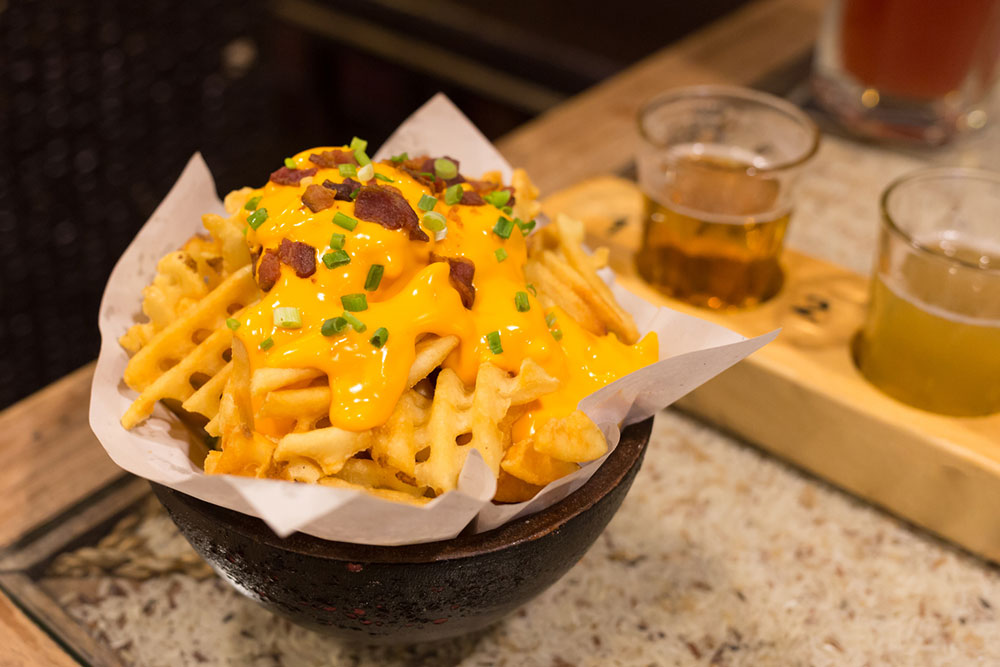7 foods to avoid for managing lung cancer

Lung cancer is a malignant tumor that originates in the cells of the lungs and can spread to other organs if left undetected. Although nutrition-based changes cannot be a direct remedy or prevention measure for this disease, they can significantly influence the risk and help improve overall lung health. So, here is a look at the role of nutrition and a few foods to avoid when dealing with lung cancer:
Foods to avoid
Nutrition plays a key role in lung cancer prevention through several mechanisms. Healthy, balanced meals rich in antioxidants, vitamins, and minerals can help in building a strong immune system, which helps the body defend against cancerous cell changes. Certain foods like fruits and vegetables contain compounds that may protect against the oxidative damage and inflammation associated with cancer development. Additionally, balanced meals can contribute to overall health and well-being, reducing the likelihood of developing conditions that may increase the risk of lung cancer, like cardiovascular diseases. While nutrition is just one aspect of lung cancer prevention and management, it can complement other measures.
Processed food
Foods like ready-to-eat meals, packaged snacks, and meats like bacon, sausages, and hot dogs are often high in saturated fats and contain harmful additives, which are associated with an increased risk of lung cancer. These processed meats often come with a health warning.
Salty food
Excessive salt, found in processed and fast foods, can lead to inflammation and worsen the symptoms of lung cancer. Common salty snacks like potato chips and certain instant noodles are best avoided. High sodium intake may also lead to high blood pressure, which is another risk factor for lung cancer.
Soda and energy drinks
Regular intake of sugary drinks like soda, energy drinks, and sweetened iced teas has been linked to a higher risk of lung cancer. Sugary foods often do not offer the nutrients the body needs to cope with the disease and treatment procedures. Further, the high sugar content in these drinks can also contribute to inflammation and oxidative stress, potentially promoting cancer cell growth and worsening cancer symptoms.
Fried foods
Fried foods, especially when cooked in unhealthy oils or trans fats, can release harmful carcinogens. French fries, fried chicken, and various deep-fried snacks fall into this category. The high temperatures used in frying can lead to the formation of acrylamide, a potentially cancer-causing compound.
Red meats
Regular intake of red meats like beef and lamb, as well as processed meats like ham, salami, and pepperoni, may worsen lung cancer symptoms. Further, these meats contain heme iron and can produce compounds that increase cancer risk when inhaled after cooking them at high temperatures. Choosing lean protein sources like poultry or fish is a healthier choice for maintaining lung health.
Charred or grilled meat
Cooking meat at a high temperature or over an open flame can produce carcinogenic compounds. Barbecued or grilled meats, including burgers and steaks, often have blackened or charred areas, which should be avoided. Minimizing charred or grilled meat intake and using marinades before cooking can reduce this risk.
Undercooked and raw foods
When dealing with lung cancer, it is important to avoid raw foods to lower the risk of infections. Undercooked or raw food, especially certain preparations of eggs and fish, can carry harmful bacteria that may weaken the immune system. Avoiding such foods is especially important when undergoing treatment for cancer, as it is important to maintain physical strength to cope with the procedures.
Managing lung cancer
Choosing healthier foods: Here are certain foods that may be beneficial for those dealing with lung cancer:
– Fruits and vegetables are rich in antioxidants like vitamins A, C, and E, which help fight oxidative stress and inflammation associated with cancer. Berries, citrus fruits, and leafy greens are particularly rich in these nutrients.
– Adding lean proteins such as poultry, fish, tofu, and legumes to daily meals can help maintain muscle mass and support overall health during cancer treatment.
– Whole grains like brown rice and quinoa can provide energy and fiber, aiding digestion and addressing common side effects of cancer treatments.
– Fatty fish like salmon and flaxseeds are sources of omega-3 fatty acids, which exhibit anti-inflammatory properties and can help reduce cancer-related inflammation. However, fish should be thoroughly cooked.
– Adequate hydration is crucial here, as cancer treatments like chemotherapy cause dehydration. Water, herbal teas, and hydrating foods like watermelon can help maintain fluid balance.
Seeking treatment: Lung cancer is typically diagnosed through a combination of imaging tests, such as chest X-rays and CT scans, and biopsy procedures where a sample of lung tissue is examined for cancerous cells. Additionally, advanced diagnostic techniques like PET scans and genetic testing may be used to determine the cancer stage and specific characteristics, helping guide treatment decisions. Here are a few treatment options for the condition:
– Surgery can help remove the cancerous tissue while preserving as much healthy lung tissue as possible.
– Radiation involves the use of high-energy rays to target and destroy cancer cells.
– Chemotherapy helps kill cancer cells or inhibit their spread beyond the lungs.
– Immunotherapy stimulates the immune system to recognize and attack cancer cells. These treatments are designed to enhance the body’s natural defenses against cancer.
– Targeted therapy targets cancer cells with certain genetic mutations and interferes with the signaling pathways that drive cancer growth.
– Palliative care focuses on symptom management, pain relief, and improving the overall quality of life. The care here aims to enhance physical comfort and emotional well-being when dealing with the disease.
It is important to note that nutritional needs can vary from person to person. So, when dealing with lung cancer, it is important to consult a registered nutritionist who specializes in oncology nutrition. They can create a personalized nutrition plan tailored to specific requirements and even recommend options to address any nutritional deficiencies.